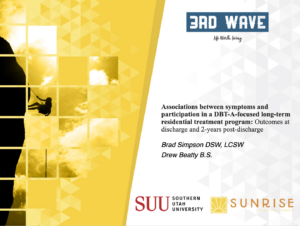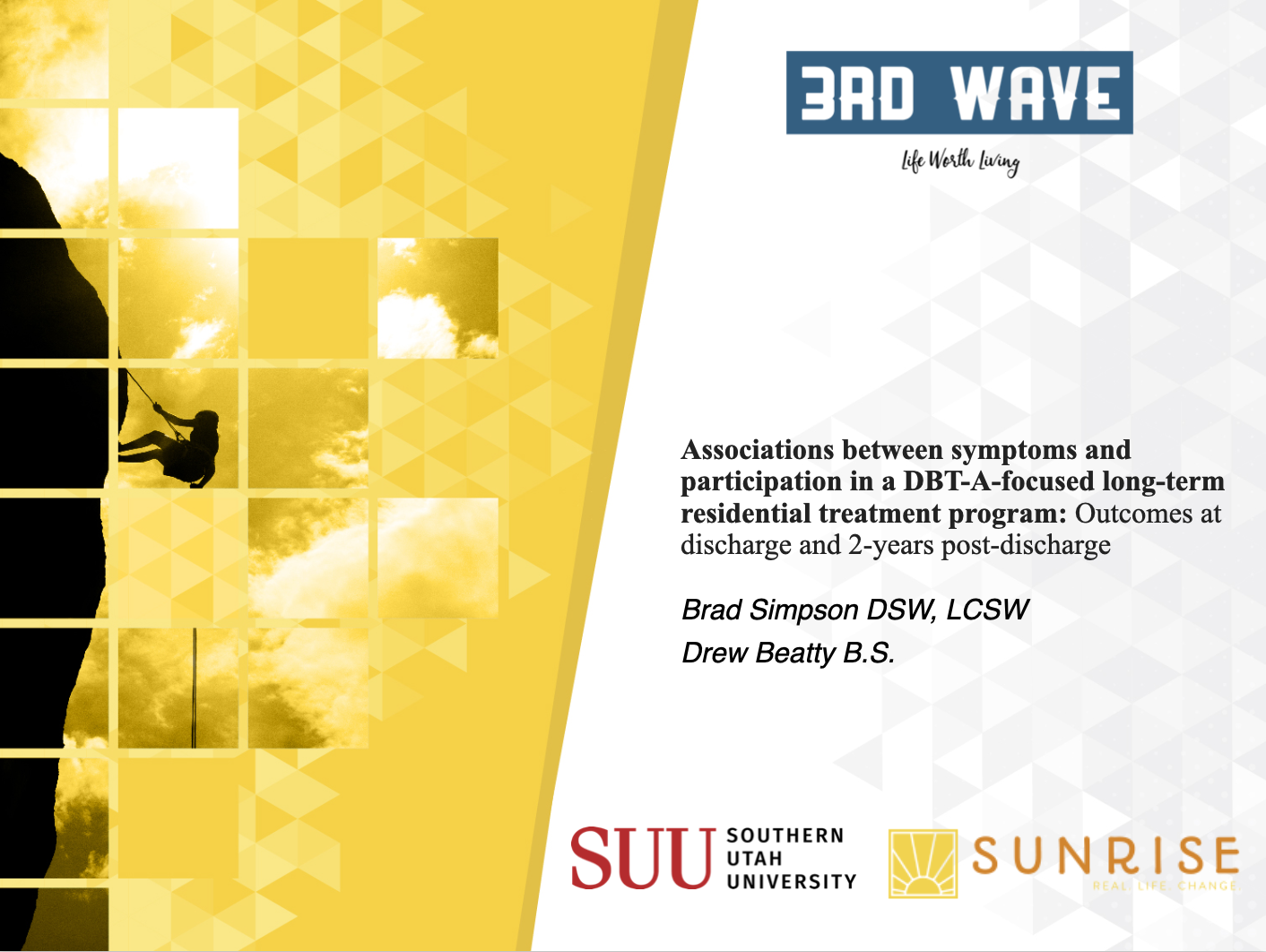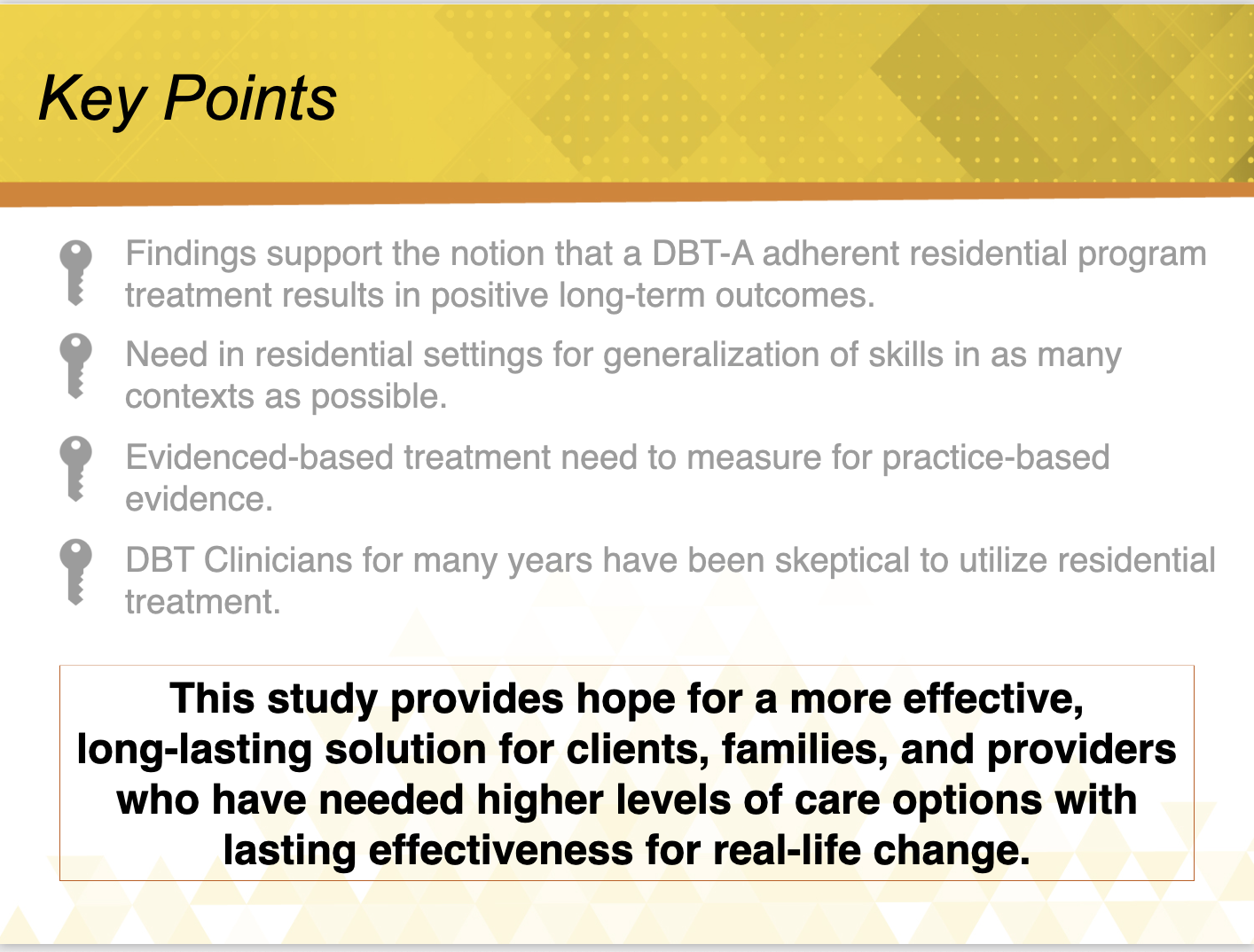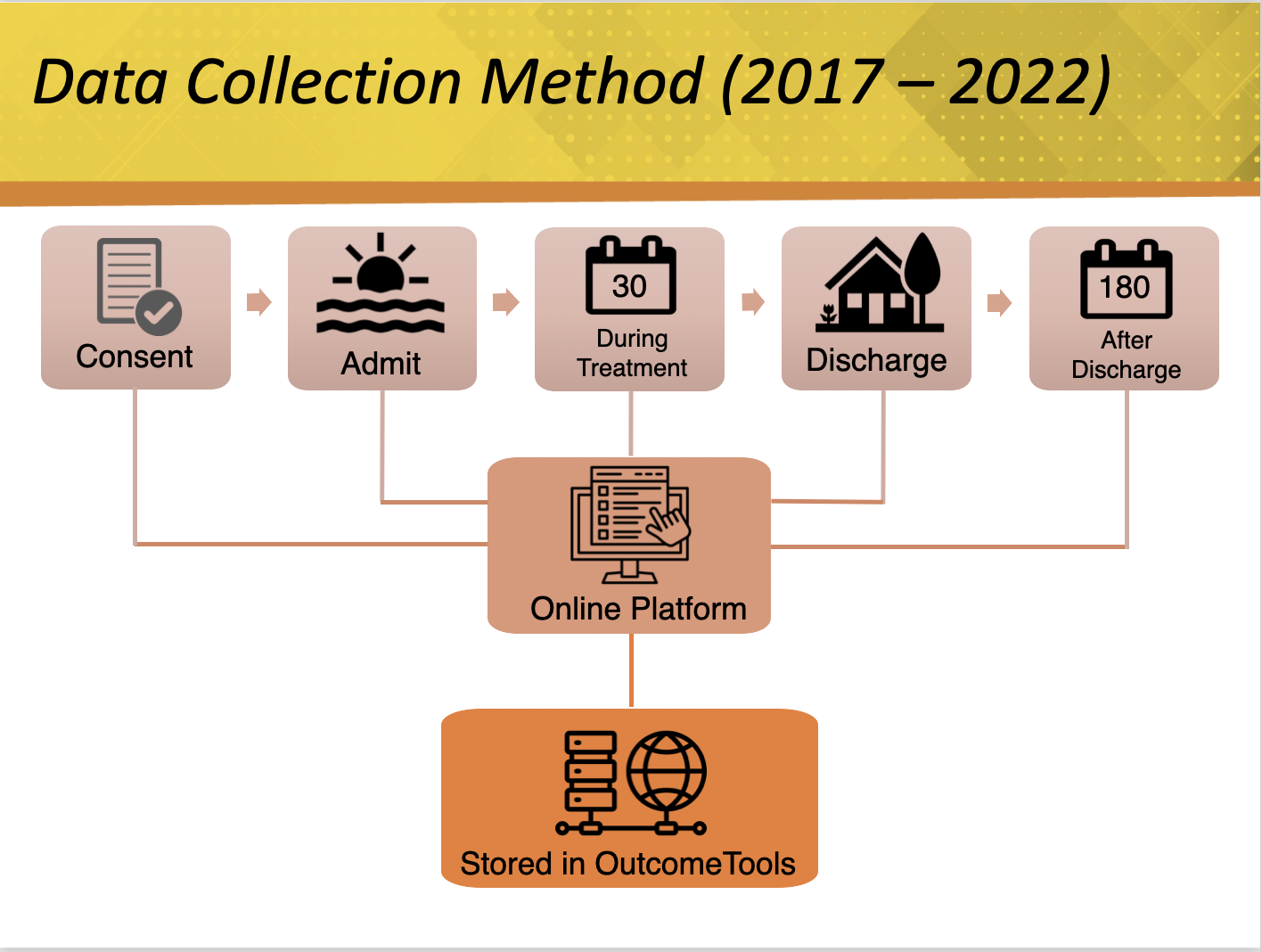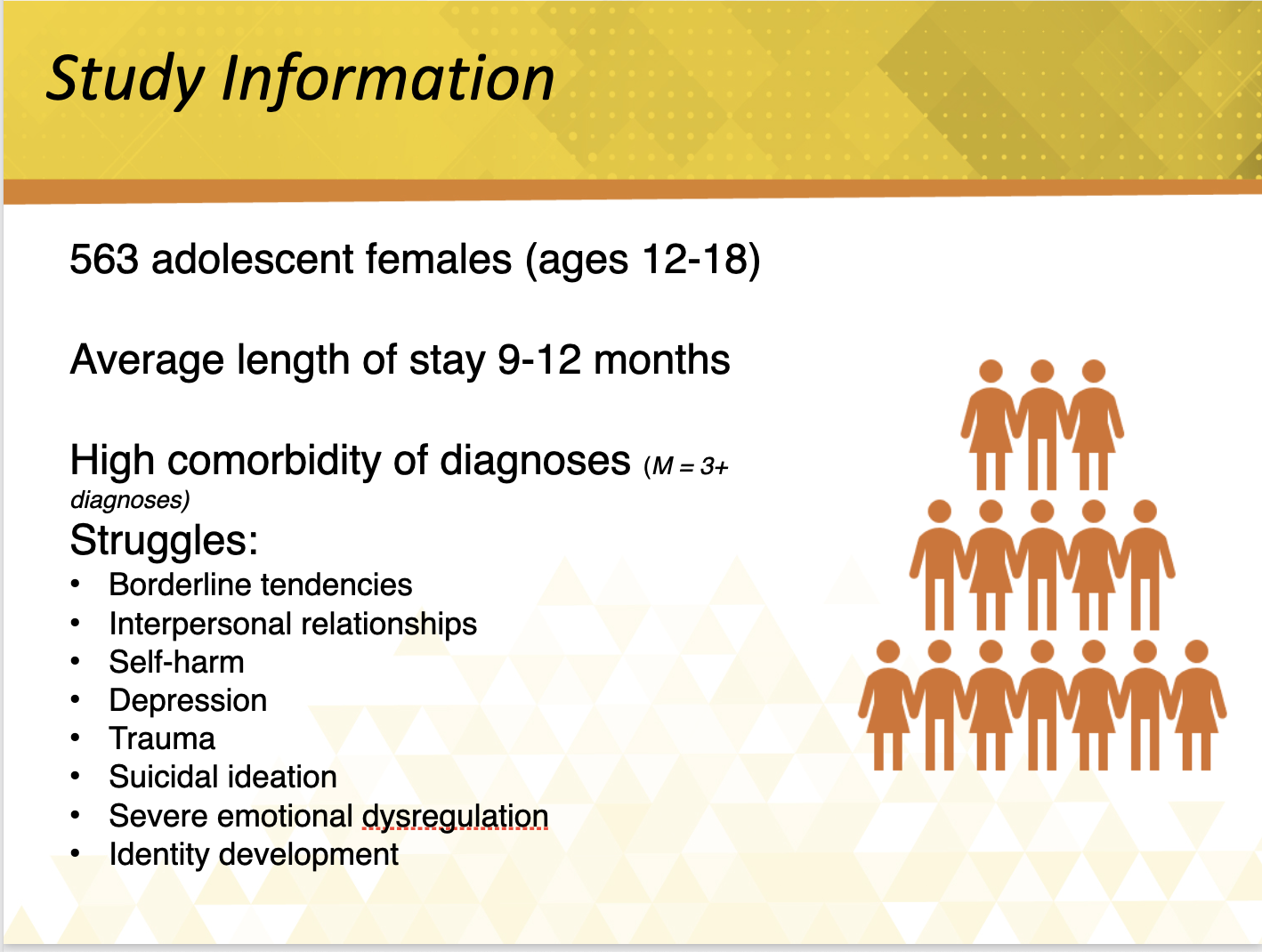Introduction
Dr. Brad Simpson, Director of Research and Development at Sunrise Residential Treatment Center, and Research Assistant Drew Beatty recently shared compelling insights from their paper, “Associations between Symptoms and Participation in a DBT-A Focused Long-term Residential Treatment Program: Outcomes at Discharge and 2-Years Post-Discharge.” Their extensive five-year analysis of Sunrise RTC students and families sheds light on the efficacy of Dialectical Behavior Therapy (DBT) in long-term residential programs.
Nationwide Recognition
Presenting their findings at the IECA and ISITDBT Conferences, Dr. Simpson and Mr. Beatty received acclaim for their groundbreaking work, showcasing the impact of DBT-A adherent residential program treatment on long-term outcomes.
Key Findings
The study underscores the positive, lasting results of DBT-A adherent residential programs. This challenges historical skepticism among DBT clinicians and establishes residential therapy as an evidence-based treatment. The emphasis on grounding programming in practice-based evidence encourages generalizing DBT skills across various contexts.
Shifting Perspectives
Historically, DBT clinicians hesitated to embrace residential treatment. Dr. Simpson and Mr. Beatty’s research challenges this skepticism, bridging the gap between theory and practice. The study advocates for broader acceptance of residential therapy as a viable option for evidence-based treatment.
Practical Applications
Sunrise actively integrates these findings, aiming for lasting effectiveness and real-life change among students and families. The commitment to grounding therapy in evidence ensures the effective application of DBT skills in diverse contexts.
Future Prospects
Dr. Simpson and Ms. Beatty anticipate the future impact of their research by aspiring to publish their paper in a peer-reviewed journal within the coming year, contributing to the academic community.
Conclusion
DBT’s transformative potential in long-term residential programs is now backed by robust evidence. Sunrise’s dedication to implementing this research marks a significant step in improving lives. As these findings gain recognition in academic circles, a broader shift towards accepting and utilizing residential therapy appears increasingly promising.

